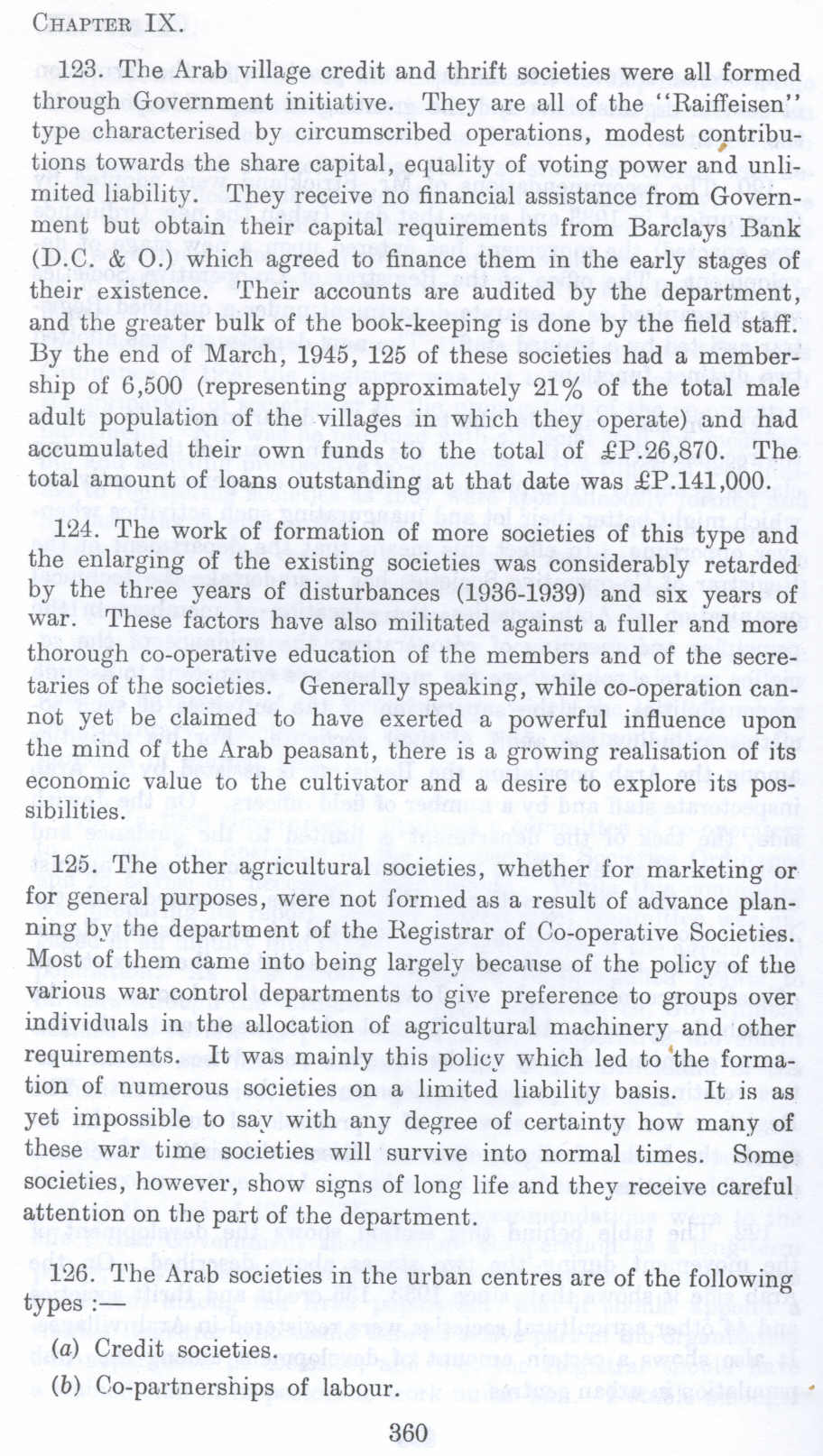| Prev | Next |  |
| Prev | Next |
| PalestineRemembered | About Us | Oral History | العربية | |
| Pictures | Zionist FAQs | Haavara | Maps | |
| Search |
| Camps |
| Districts |
| Acre |
| Baysan |
| Beersheba |
| Bethlehem |
| Gaza |
| Haifa |
| Hebron |
| Jaffa |
| Jericho |
| Jerusalem |
| Jinin |
| Nablus |
| Nazareth |
| Ramallah |
| al-Ramla |
| Safad |
| Tiberias |
| Tulkarm |
| Donate |
| Contact |
| Profile |
| Videos |
British Mandate: A Survey of Palestine: Volume I - Page 360 |
Disclaimer
The above documents, article, interviews, movies, podcasts, or stories reflects solely the research and opinions of its authors. PalestineRemembered.com makes its best effort to validate its contents.


Post Your Comment
*It should be NOTED that your email address won't be shared, and all communications between members will be routed via the website's mail server.
123. The Arab village credit and thrift societies were all formed through Government initiative. They are all of the "Raiffeisen" type characterized by circumscribed operations, modest contributions towards the share capital, equality of voting power and unlimited liability. They receive no financial assistance from Government but obtain their capital requirements from Barclays Bank (D.C. & 0.) which agreed to finance them in the early stages of their existence. Their accounts are audited by the department, and the greater bulk of the book-keeping is done by the field staff. By the end of March, 1945, 125 of these societies had a membership of 6,500 (representing approximately 21 % of the total male adult population of the villages in which they operate) and had accumulated their own funds to the total of £P.26,870. The total amount of loans outstanding at that date was £P.141,000.
124. The work of formation of more societies of this type and the enlarging of the existing societies was considerably retarded by the three years of disturbances (1936-1939) and six years of war. These factors have also militated against a fuller and more thorough co-operative education of the members and of the secretaries of the societies. Generally speaking, while co-operation cannot yet be claimed to have exerted a powerful influence upon the mind of the Arab peasant, there is a growing realisation of its economic value to the cultivator and a desire to explore its possibilities.
125. The other agricultural societies, whether for marketing or for general purposes, were not formed as a result of advance planning by the department of the Registrar of Co-operative Societies. Most of them came into being largely because of the policy of the various war control departments to give preference to groups over individuals in the allocation of agricultural machinery and other requirements. It was mainly this policy which led to 'the formation of numerous societies on a limited liability has is. It is as yet impossible to say with any degree of certainty how many of these war time societies will survive into normal times. Some societies, however, show signs of long life and they receive careful attention on the part of the department.
126. The Arab societies in the urban centres are of the following types:-
(a.) Credit societies.
(b) Co-partnerships of labour.
Page 360